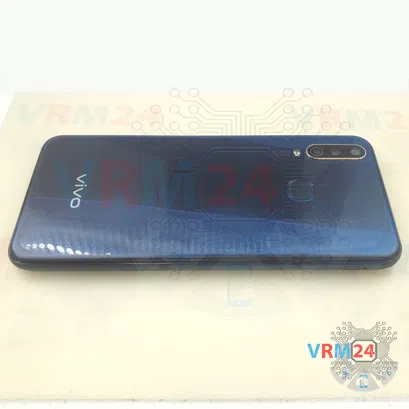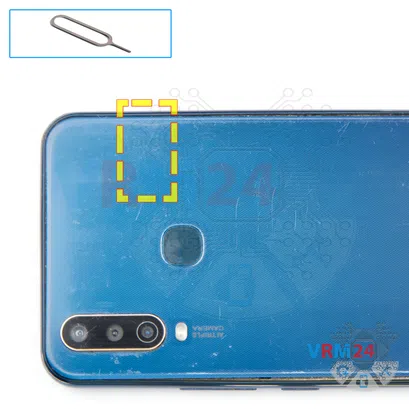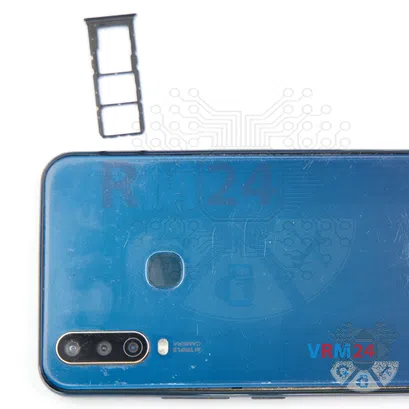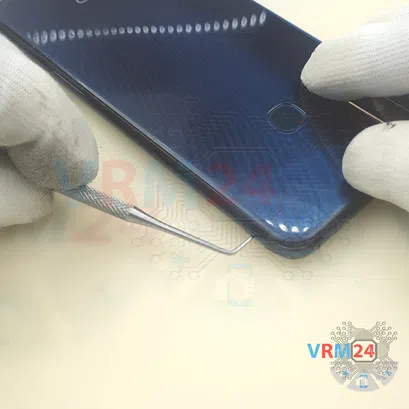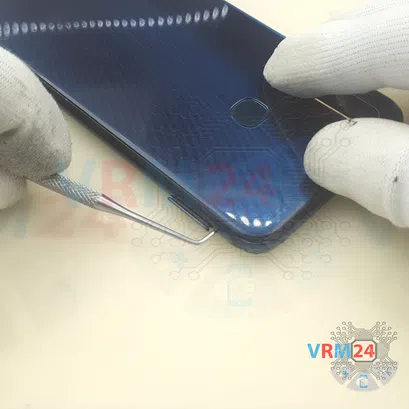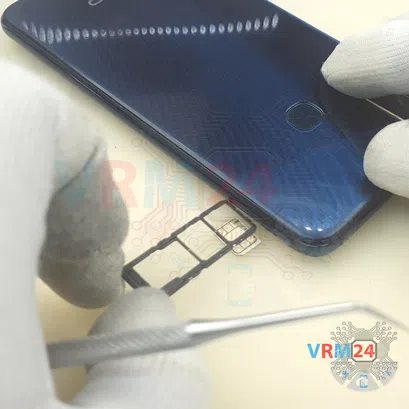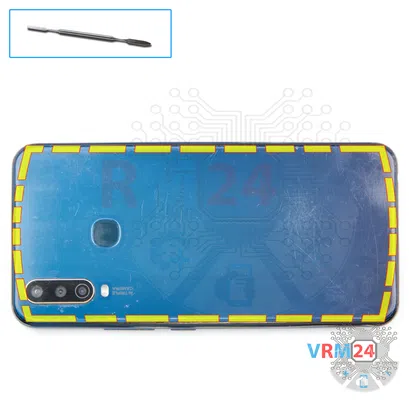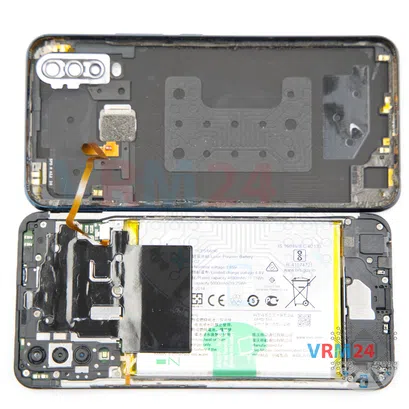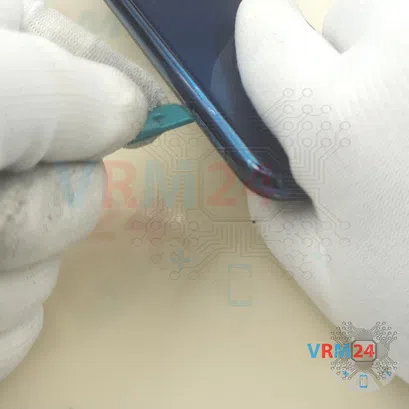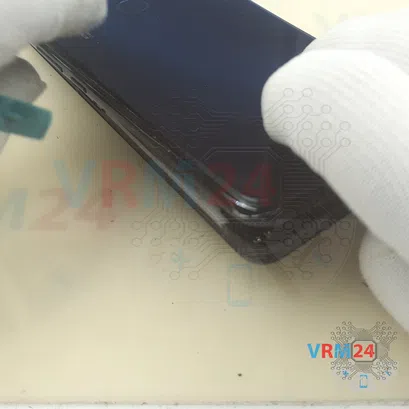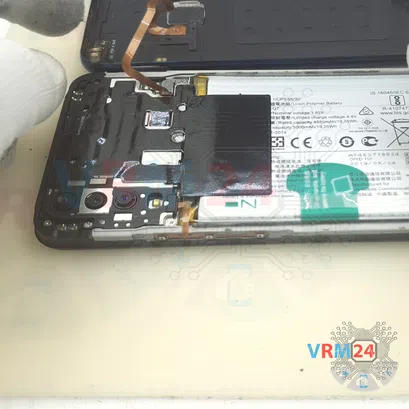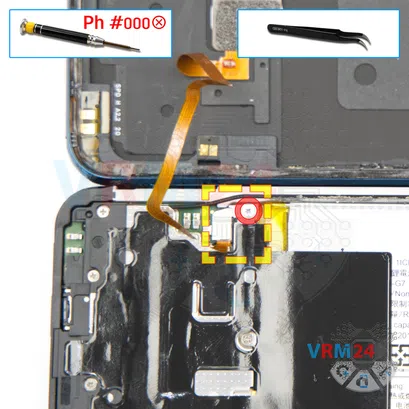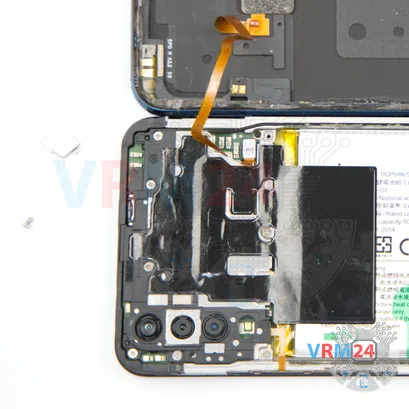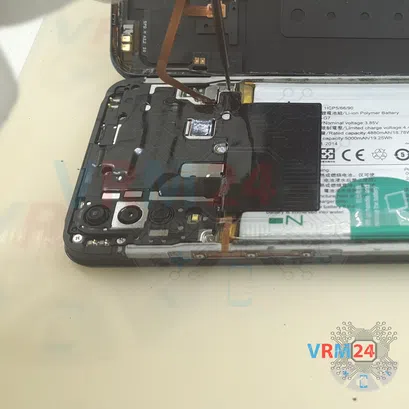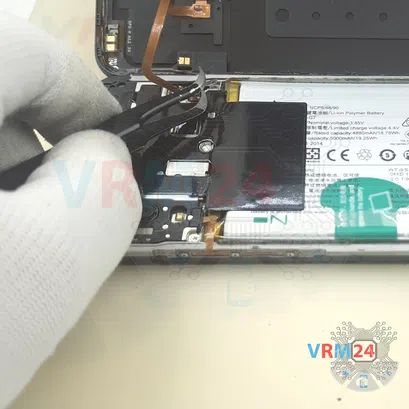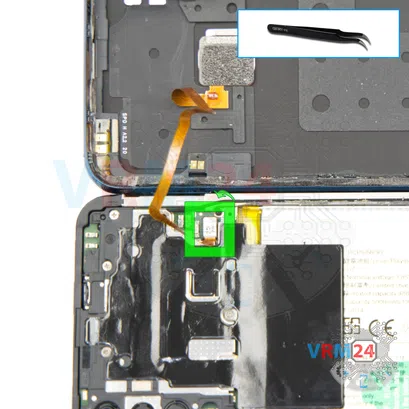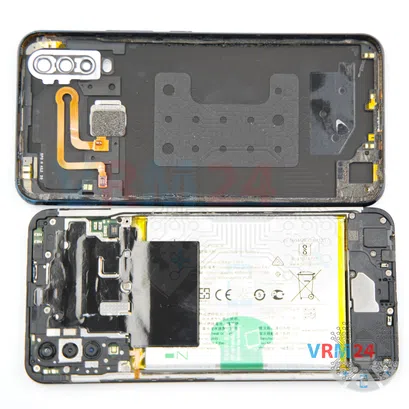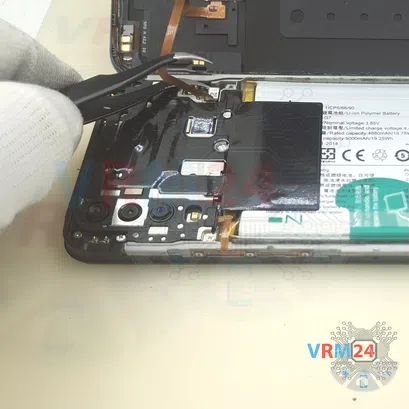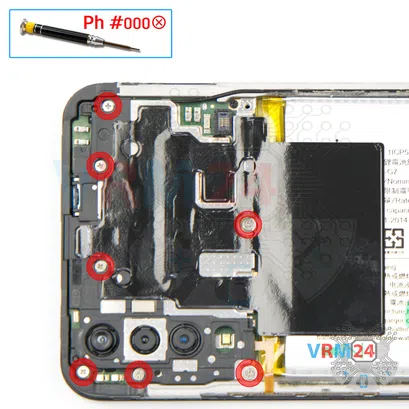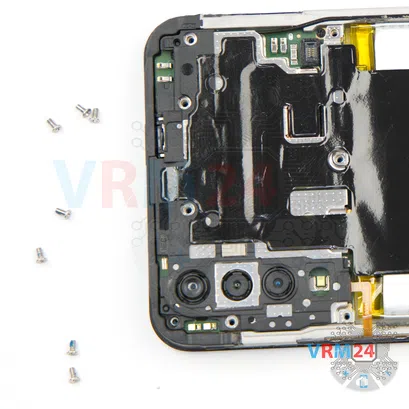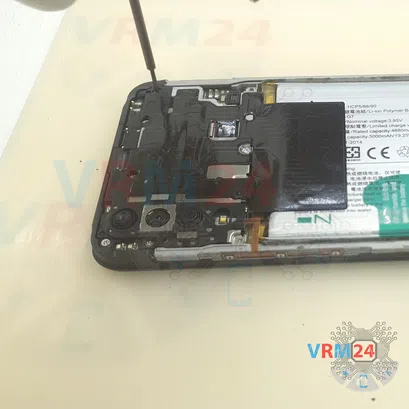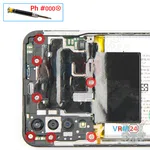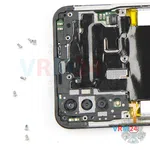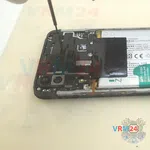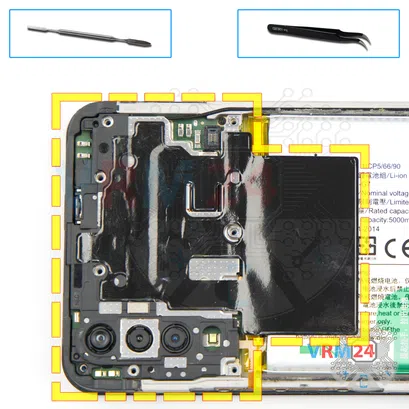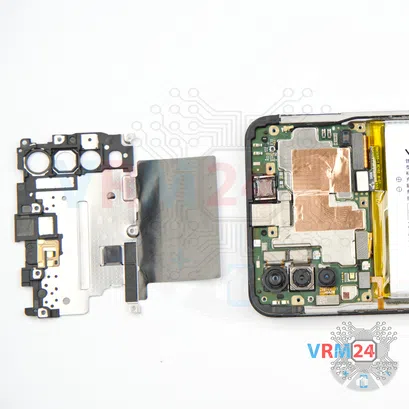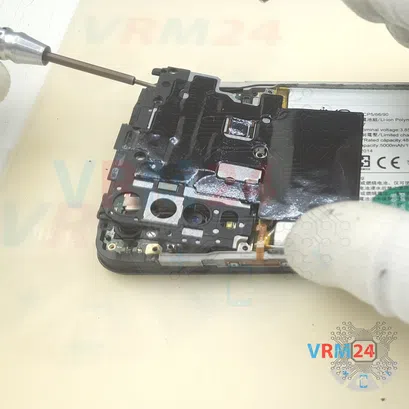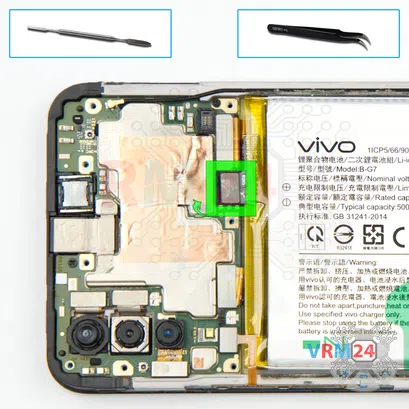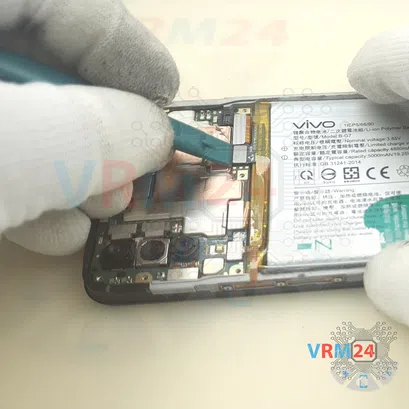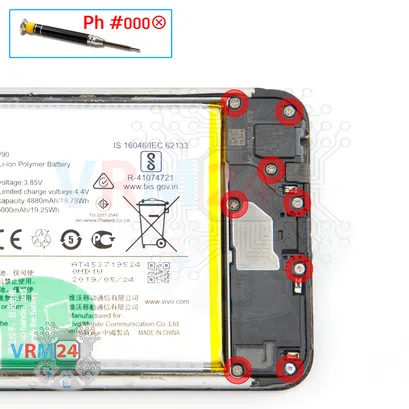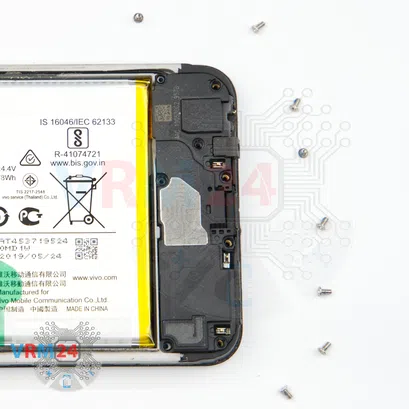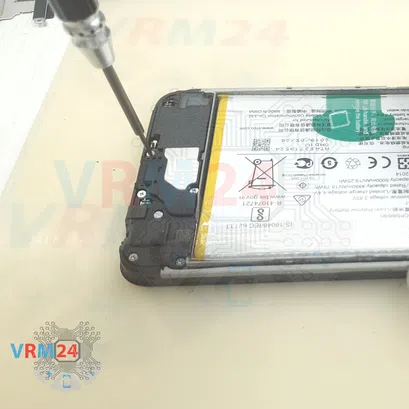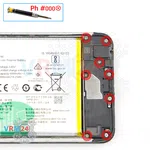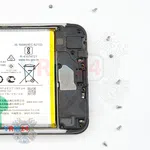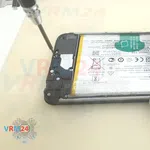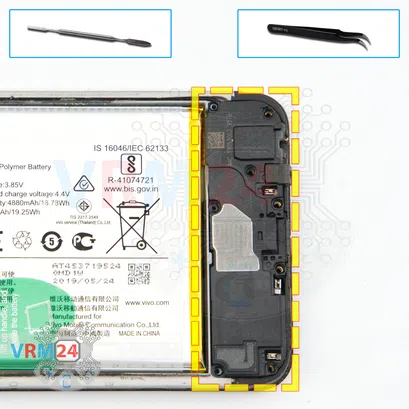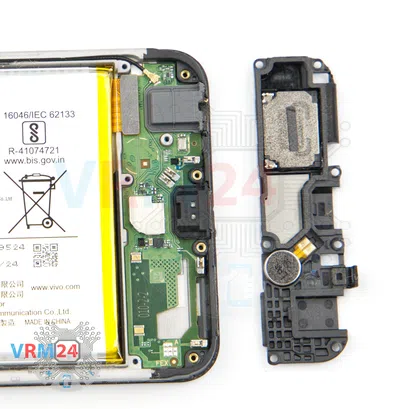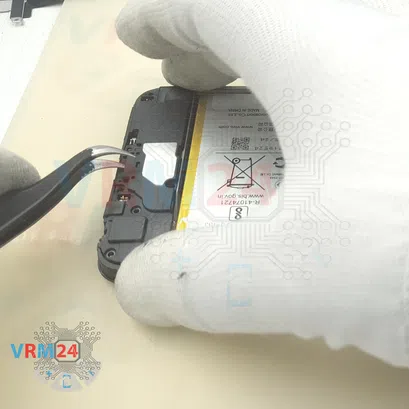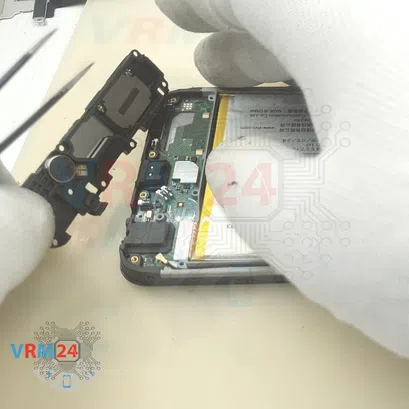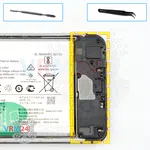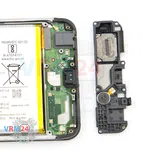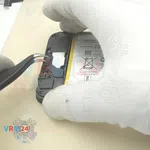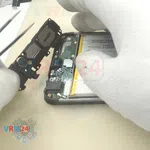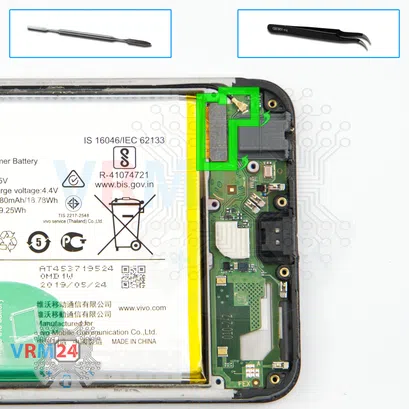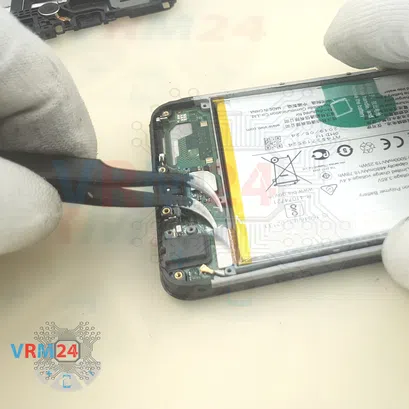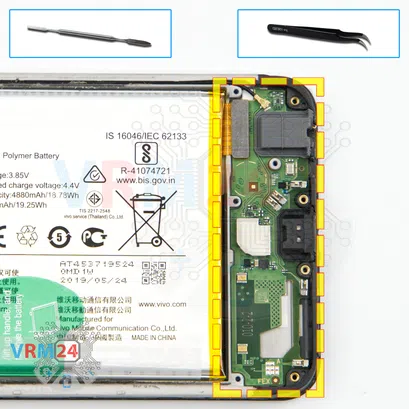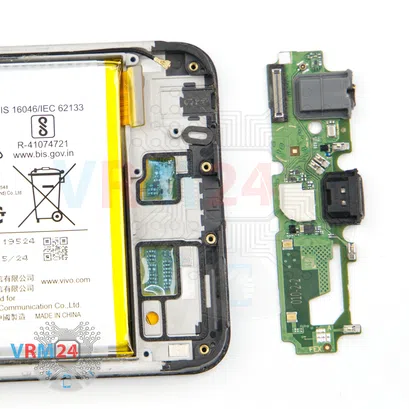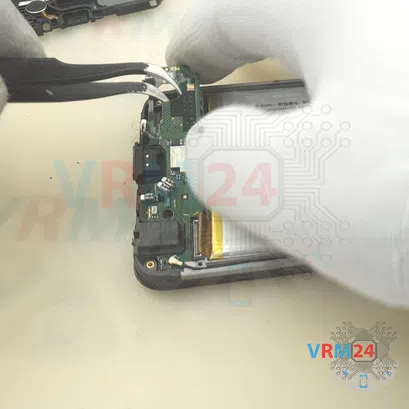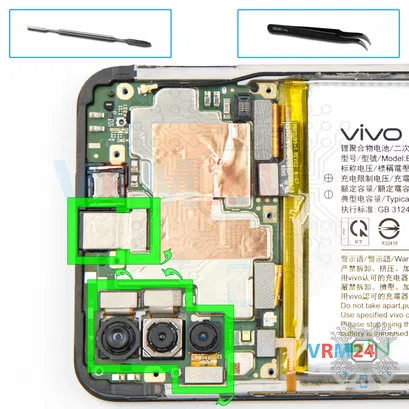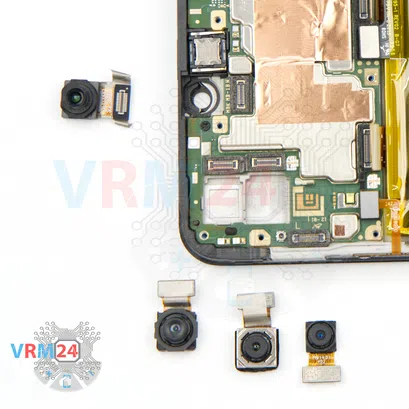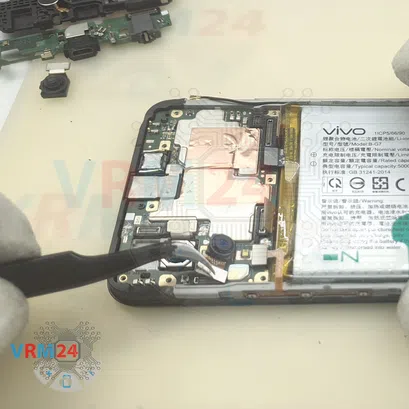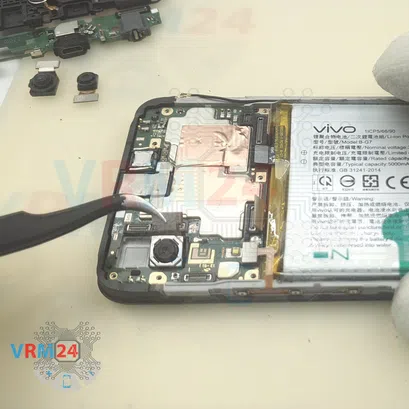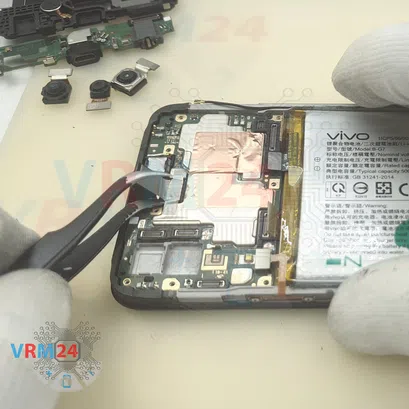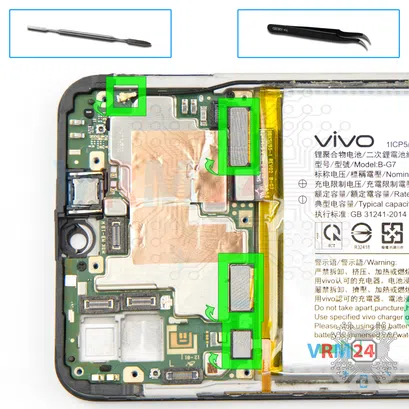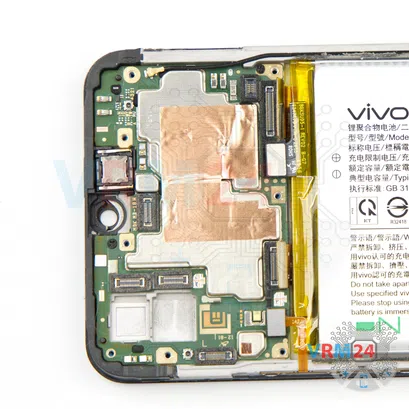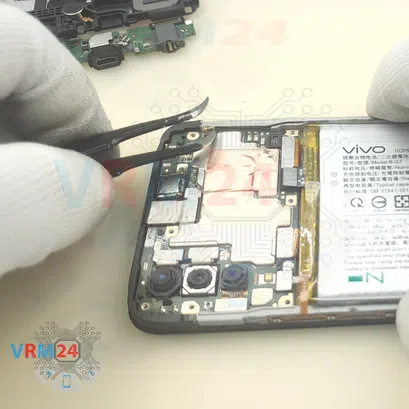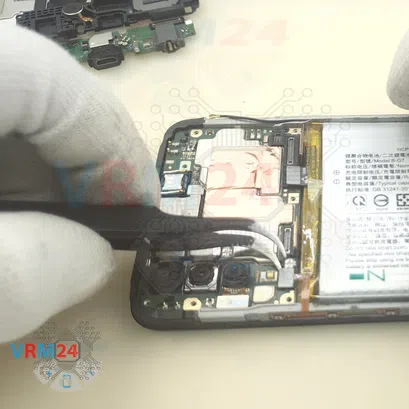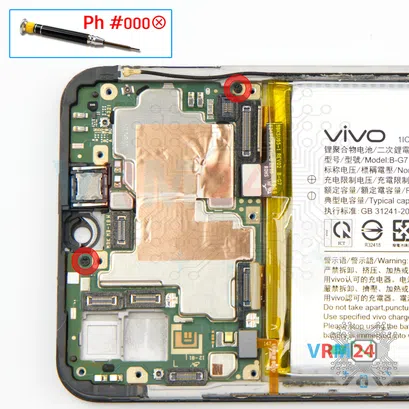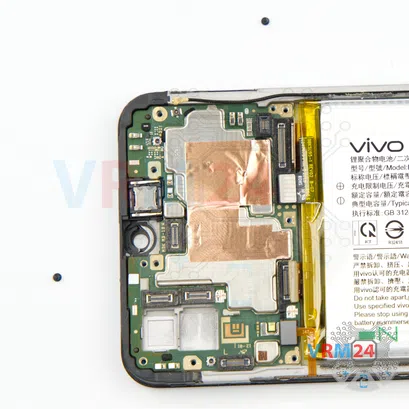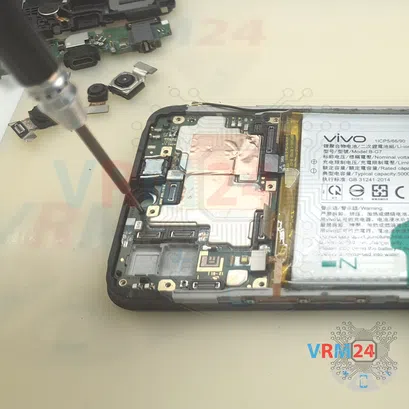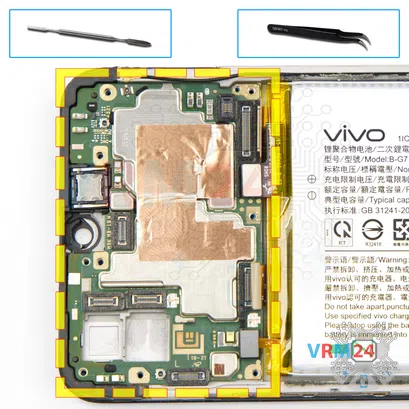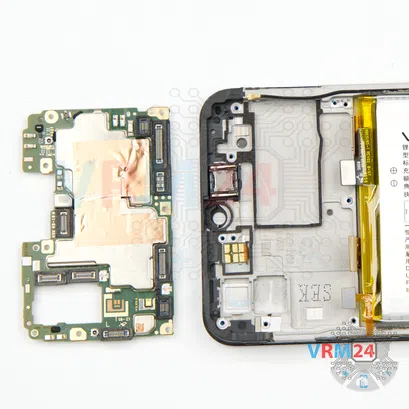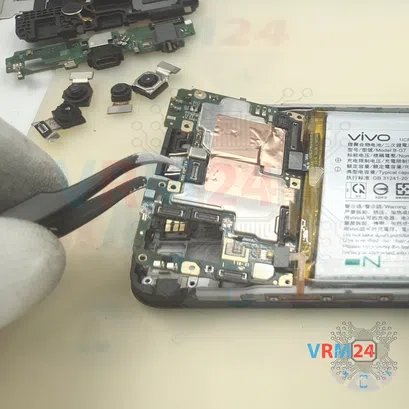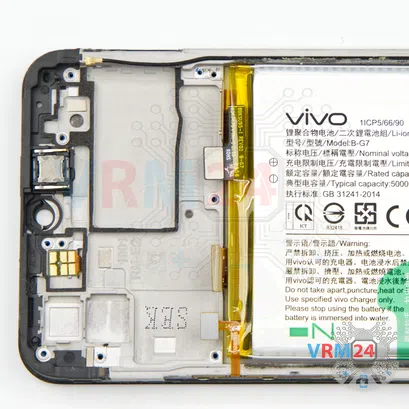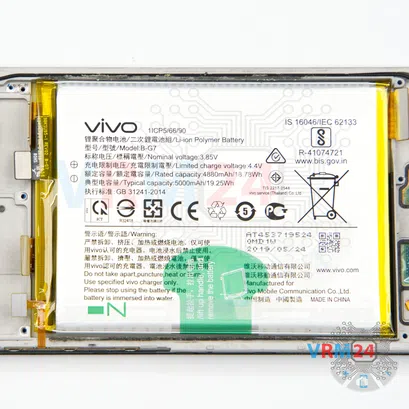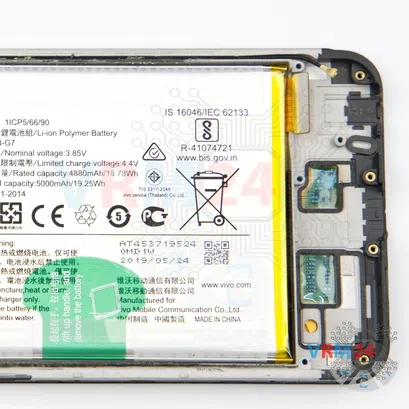⚠️️ Before disassembling, do not forget to turn your phone off.
Easy
Recommended tools



Disassembly/Repair of the mobile device vivo Y17 with each step description and the required set of tools.

Vadim Popoff
Content manager / author / content specialist
Content specialist with over 10 years of experience in the technology industry.
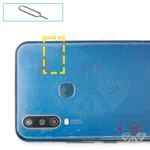
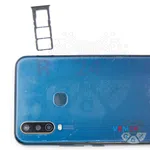
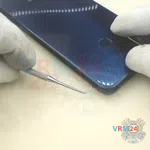
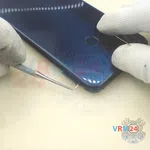
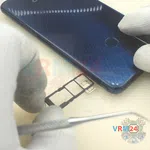
Step 2. Remove the tray
Use the ejection tool (aka Needle) or Paperclip. Push the tip all the way into the hole until the tray ejects, and then pull the tray of SIM and Memory card (Micro SD) out.
⚠️️ Pay attention! The tool must be inserted into a hole on the edge of the phone's housing. Do not press too hard. It may break the tray eject mechanism.
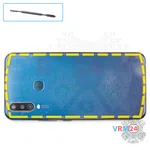
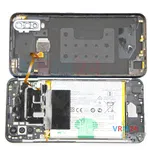
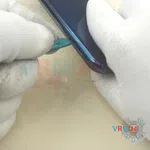
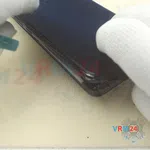
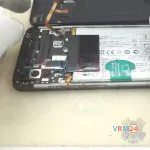
Step 3. Open the back cover
Using a spudger or a plastic pick, carefully, around the edge, detach the back cover clips, and remove it.
Do not insert the tool deeply or bend it. Otherwise, the housing may be tampered with or damaged.
⚠️️ Be careful when opening the cover from the volume and power buttons side. Thin cables and fragile buttons are straightforward to damage.
⚠️️ Pay attention to the fingerprint sensor cable located on the inside.
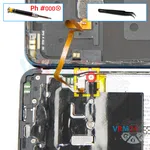
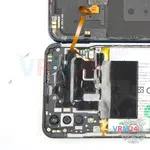
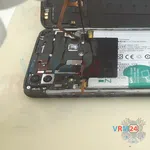
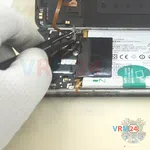
Step 4. Unscrew one screw
Using a screwdriver (Phillips 1.5 mm PH000), unscrew one screw and remove the bracket holding the connector.
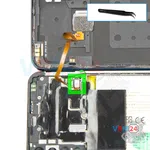
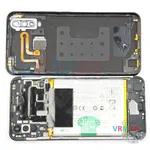
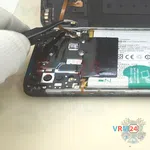
Step 5. Disconnect the connector
Pry up the fingerprint sensor connector and remove the back cover.
⚠️️Try to use non-metal or plastic tools to avoid short-circuits because the smartphone is still battery-powered.
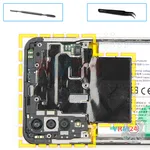
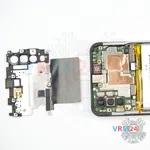
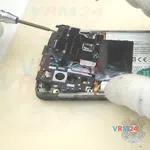
Step 7. Open the mid-frame
Pry around the edges. Disconnect attached clips by moving the opening tool along the edge. Remove the middle cover with an earpiece speaker contact pad.
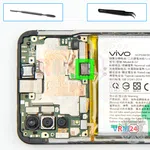
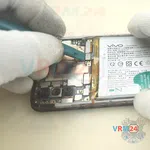
Step 8. Disconnect the battery connector
Disconnect the battery connector as soon as possible.
ℹ️️ The vivo Y17 model has a battery B-G7 with 5000 mAh capacity (aka rechargeable battery).
⚠️️ It is highly recommended to disconnect the connector to avoid possible short circuits during disassembly.
Also, try not to use a metal tool to disconnect the rechargeable battery connector or do it carefully.
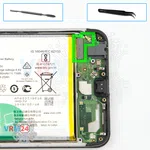
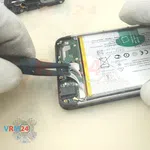
Step 11. Disconnect the connectors
Disconnect the coaxial cable connector, cable to the mainboard on the daughterboard.
⚠️️ Do not pull on the cable or pry it with a sharp tool. The connectors are pretty weak and break easily, or the cable falls out of the end (lug).
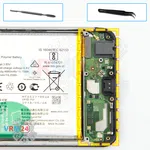
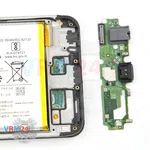
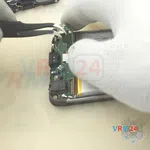
Step 12. Remove the sub-board
Remove the sub-board. It may be glued to the frame with metalized tape, so to facilitate the process, the sub-board can be heated a bit.
ℹ️️ The sub-board contains a charging port (Micro-USB), microphone, headphone jack socket, spring contacts for the speaker, vibration motor and an antenna unit.
⚠️️ It is not necessary to insert the tool underneath when removing the sub-board. Internal components could be damaged.
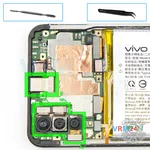
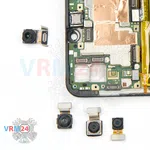
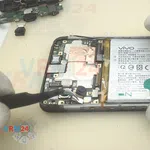
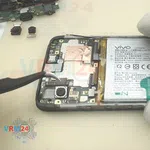
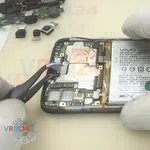
Step 13. Remove the cameras
Pry up the connectors and remove the three rear cameras and one front (selfie) camera.
⚠️️ The front camera is lightly glued with passive thermal (heat sink) film to the motherboard to dissipate heat.
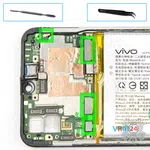
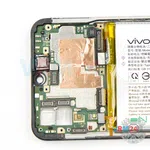
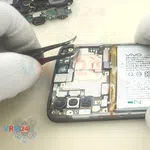
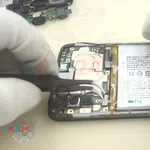
Step 14. Disconnect the connectors
Pry up the connectors of the power / volume buttons cable, display module cable, inter-board cable, and coaxial cable.
⚠️️ Be careful when removing the cables from the connectors. The cables are pretty thin, and it is easy enough to break them or damage the contact tracks inside.
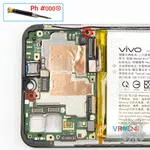
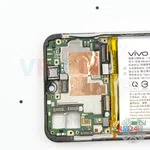
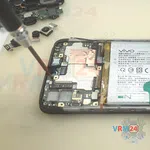
Step 15. Unscrew the screws
Using a screwdriver (Philips 1.5 mm PH000), unscrew two screws securing the motherboard.
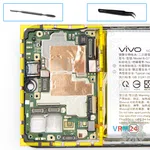
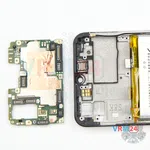
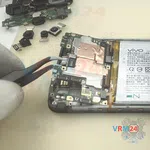
Step 16. Remove the motherboard
Carefully remove the printed circuit board. There is no need to use a lever or try to reach the circuit board by force. Make sure that nothing is getting in the way or holding the circuit board.
⚠️️ Do not bend the circuit board when removing it or push tools under it. Unbeknownst to yourself, you can damage components or cables from the inside.
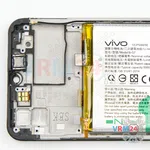
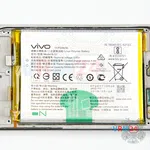
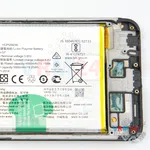
Step 17. In the display frame remained
ℹ️️ In the display frame remained: the earpiece speaker, battery, coaxial cable.
Detailed disassembly instructions of vivo Y17 in the video, made by our mobile repair & service center:
If you have a question, ask us, and we will try to answer in as much detail as possible. If this article was helpful for you, please rate it.

Evgenii Kuzmin
Senior maintenance service and repair engineer
Back to the list

